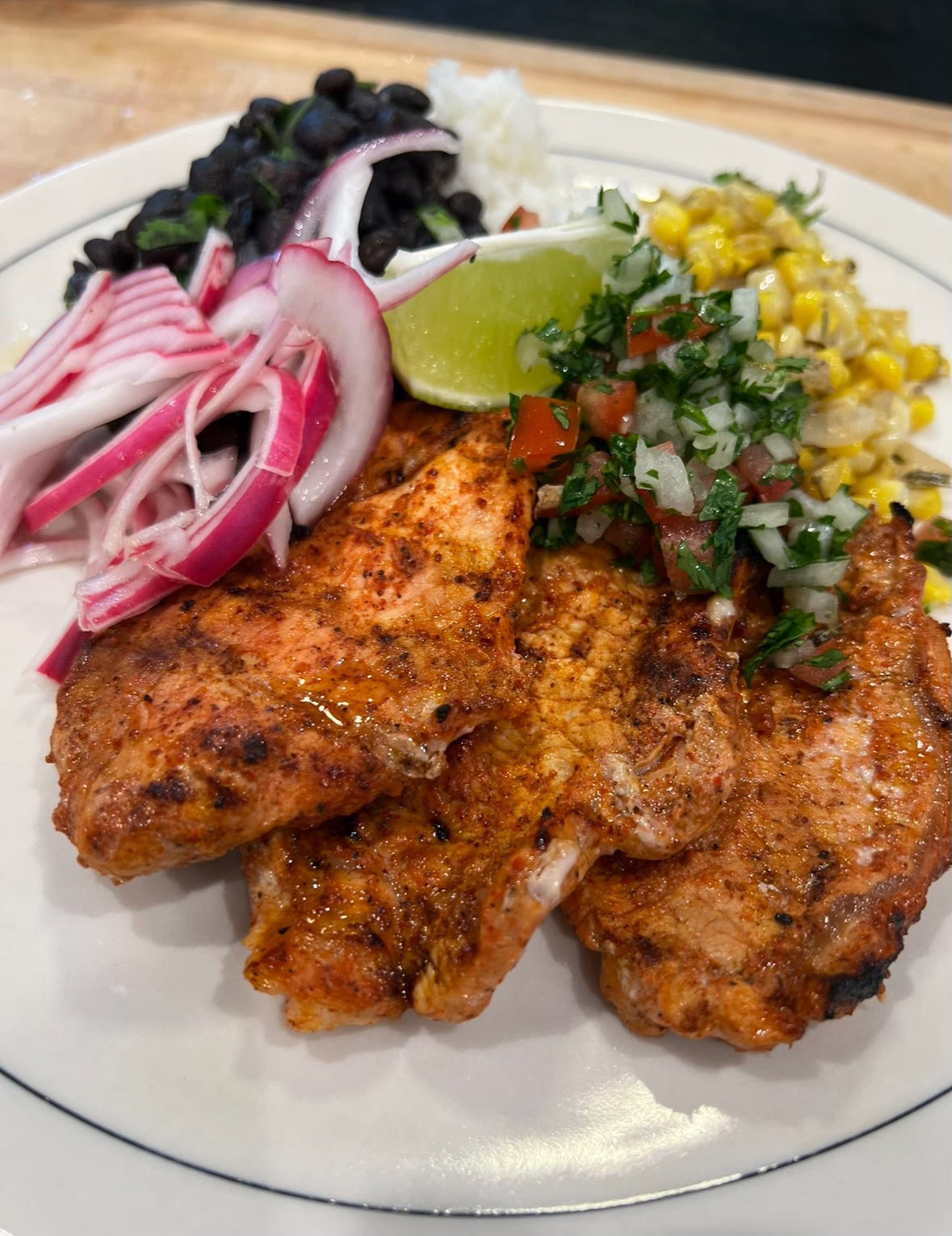Summer’s Best Plate: Spilled Milk #339
Poc chuc: Yucatán’s citrus-fired flame job. I'm also getting into: poc chuc's indigenous roots, what each side brings to the plate and why sour orange is a game-changer.
Poc chuc is the sound of pork meeting fire in a region that’s been cooking meat over flames since long before the Spanish stumbled ashore in search of spices and superiority, gold, glory and God. It’s a Mayan original, a dish so direct and honest it makes barbecue look like a therapy session. And it is so easy, the perfect summer grill meal.
My Vietnam trip with Modern Adventure is sold out, but you can still join the waitlist! For all the details, click here.
Poc chuc translates to "charcoal roasting" in Mayan. It’s a classic Yucatan dish with roots in indigenous cooking. The name implies pre-Columbian origins, but that is confusing because pork was introduced by the Spanish. Marinating pork in sour orange juice and grilling it is believed to have been a method for preserving and flavoring meat during Spanish-Mayan habitation, when meat had to be salted to prevent spoilage. The Maya used local fruit to marinate bush meat, so it makes complete sense to me that they saw the Spanish salting meat, which they took and then soaked in orange juice before cooking over open fire. The juice would have made the meat less salty and more favored by the indigenous peoples.
The history of food travels along roads that make the most sense, so I discard the notion that poc chuc was invented by farmers during the 1800s, and the belief that it was created at a restaurant near Mérida in the 1900s is laughable. Native people were curing, flavoring and preserving foods with acids and fruits and using fire and smoke on small cutlets of meat long before the Spanish showed up.
Keep reading with a 7-day free trial
Subscribe to Andrew Zimmern's Spilled Milk to keep reading this post and get 7 days of free access to the full post archives.






